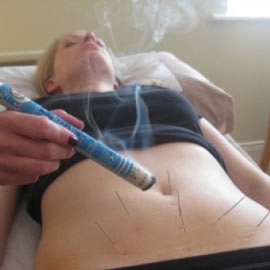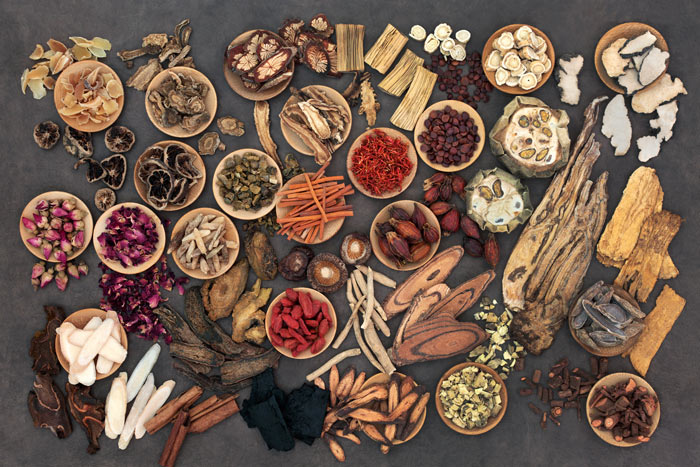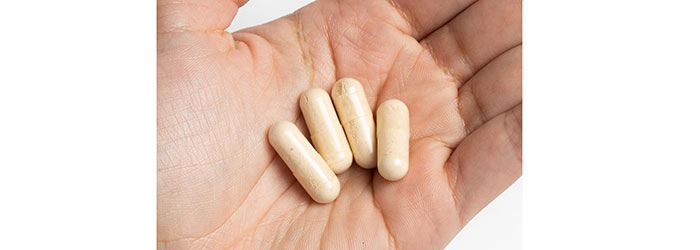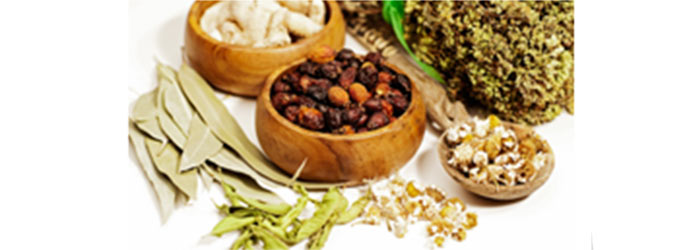Natural treatment for Insulin resistance in patients with PCOS

Is Acupuncture an effective modality for treatment of Migraine headache? Research has shown promising results.
May 25, 2020
Acupuncture and Herbal Medicine for Menstrual Cramps (Dysmenorrhea)
July 23, 2020PCOS (polycystic Ovarian Syndrome) is a hormonal condition that can cause irregular menstrual cycles, fertility difficulties, excess male hormone levels, and small follicles on the ovaries. As many as 65%-70% of women who have PCOS also develop insulin resistance and/or hyperinsulinemia — a condition that leads to high glucose levels and the potential for pre-diabetes and lead to type 2 diabetes. In fact, insulin resistance may actually be at the root of one’s PCOS, playing a role in causing the condition in the first place, as well as exacerbating its symptoms. Insulin resistance requires management with lifestyle modifications or treatment with medication to prevent complications, so it’s something every woman with PCOS should be screened for. Insulin is a hormone secreted by pancreas and helps to transport glucose into the cells. Patients with insulin resistance do not respond to insulin efficiently and quickly causing a higher amount of glucose level in the blood and less glucose transport into the cells which overtime cause obesity and low energy.
PCOS is recognized as a risk factor for developing diabetes. Despite the fact that the signs and symptoms of PCOS begin before the signs and symptoms of insulin resistance, it is believed that insulin resistance may play a role in causing PCOS, rather than the other way around. Elevated insulin levels may be a contributing factor to inflammation and other metabolic complications associated with PCOS. While the connection is known, the causes of the relationship between the two conditions are not completely clear. Not all women with insulin resistance develop PCOS, Some experts suggest that obesity-associated insulin resistance alters the function of the hypothalamus and the pituitary gland in the brain, increasing the production of androgenic hormones, which contribute to PCOS. The hyperinsulinemia appears to be an important factor in maintaining hyperandrogenemia, acting directly to induce excess androgen production by theca cells and also as a co-gonadotropin, augmenting the effect of the increased LH stimulus seen in a majority of women with PCOS.
Medications such as thiazolidinediones, (pioglitazone and rosiglitazone are presently available) have been shown to be effective in controlled trials, reducing plasma androgens and improving insulin sensitivity and glucose tolerance. Other studies have shown that metformin is effective in improving ovulation rates in women with clomiphene resistance. Further support for the effectiveness of metformin is seen from a large meta analysis of subjects at risk for diabetes mellitus, including those with and without PCOS and those with and without obesity. Overall, treatment with metformin for at least 8 weeks reduced weight, fasting glucose, triglycerides and LDL by 4.5–5.6%, fasting insulin by 14%, calculated insulin resistance (HOMA-IR) by 22% and reduced new onset diabetes by 40%. Importantly in PCOS metformin for up to 6 months reduced hirsutism and in most studies significantly reduced androgen levels, with reductions in testosterone being between 25–50%.
Medications mentioned above have certain side effects, a more natural way of treating PCOS and the insulin resistance associated with PCOS is via diet, supplementations and certain herbs which can also treat insulin resistance.
- Acupuncture: Numerous experimental studies have demonstrated that acupuncture can correct various metabolic disorders such as hyperglycemia, overweight, hyperphagia, hyperlipidemia, inflammation, altered activity of the sympathetic nervous system and insulin signal defect, all of which contribute to the development of IR. In addition, acupuncture has the potential to improve insulin sensitivity. The evidence has revealed the mechanisms responsible for the beneficial effects of acupuncture, though further investigations are warranted.
- Inositol: Available data suggest that inositol, through its isomers (myoIns and DCIns) and probably some of its phosphate intermediate metabolites and correlated enzymes (like IP6K1), participates in insulin signaling and glucose metabolism, by influencing distinct pathways. Some preliminary clinical reports provided compelling evidence supporting the beneficial effects obtained with inositol in insulin-resistant patients. Inositol reduces glycemia levels and hyperinsulinemia, while buffering negative effects of sustained insulin stimulation upon the adipose tissue and the endocrine system.
- Quercetin: is a plant flavonoid which can be found is many plants and food such as red wine, onions, green tea, apples, berries, ginko, St John’s wort and American Elder. Quercetin, derived from Chinese medicinal herbs such as hawthorn, has been proven practical in the management of IR (insulin resistance) in diabetes. In a study Quercetin significantly reduced the levels of blood insulin, interleukin 1β, IL-6, and tumor necrosis factor α. Quercetin also significantly decreased the granulosa cell nuclear translocation of NF-κB in the insulin-resistant PCOS rat model.
- Berberine: is the active ingredient in herbs such as huang lian have shown to treat PCOS IR conditions. In one study berberine plus cyproterone acetate (anti-androgen drug) were superior to CA in treating the reproductive complications associate with PCOS due to high androgen.
- Other studies have shown the following herbs to be effective in IR and PCOS. Liquorice (gan cao), Spearmint, Ginseng (ren shen, dang shen) , Flaxseed, Aloe-vera , Cinnamon (rou gui), Chaste Berry (Mang jing zi) , White Peony (bai shao), Milk thistle, N-acetyl cysteine (NAC), Kasip Fatimah, Chamomile, Astragalus (huang qi)
- Alpha Lipioc acid: A study demonstrated that ALA enhances hepatic insulin sensitivity and prevents the development of NAFLD; furthermore, ALA ameliorates glucose metabolism by modulating the insulin-signaling pathway. Overall, ALA facilitates the liver’s capacity for glucose production and glucose utilization and might be effective in decreasing whole-body glucose catabolism in HFD-fed mice.
References:
- https://www.verywellhealth.com/pcos-and-insulin-resistance-2616319
- https://www.ncbi.nlm.nih.gov/pmc/articles/PMC3277302/
- https://www.ncbi.nlm.nih.gov/pmc/articles/PMC6286734/
- https://link.springer.com/article/10.1177/1933719116667218#Abs1
- https://www.hindawi.com/journals/ecam/2018/2532935/
- https://dom-pubs.onlinelibrary.wiley.com/doi/abs/10.1111/j.1463-1326.2009.01192.x
- J.Pharm.Phytopharmacol.Res. 2012, 1(6): 396-402
- https://www.ncbi.nlm.nih.gov/pmc/articles/PMC4186984/





